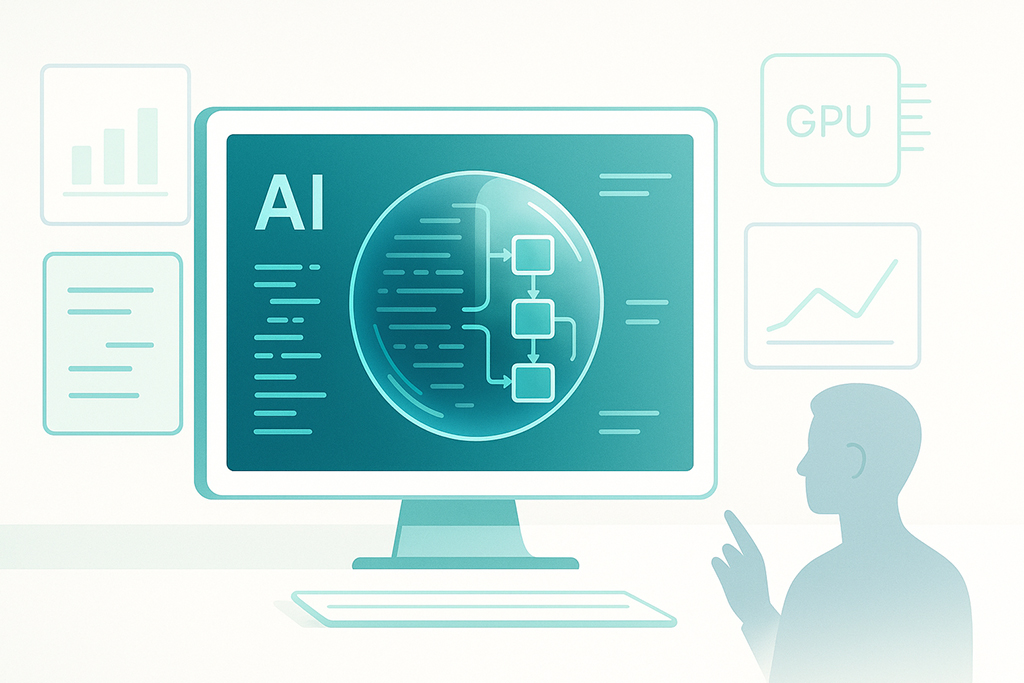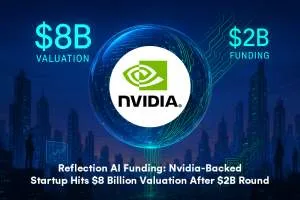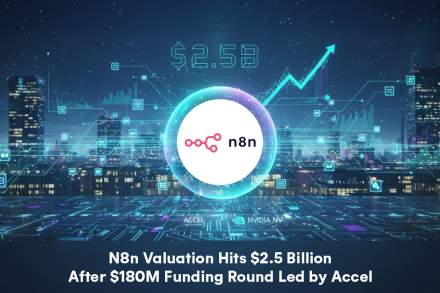Reflection AI, a rising star in the artificial intelligence ecosystem, has raised Reflection AI Funding has been raised to $2 billion in fresh funding, propelling its valuation to $8 billion. The round was led by a consortium of global investors, with Nvidia playing a pivotal role in backing the company’s expansion into advanced AI infrastructure and coding automation tools.
This marks one of the largest AI funding rounds of 2025, underscoring the surging investor appetite for technologies that can build and scale intelligent systems autonomously. The company had previously raised around $130 million, which now seems modest in comparison to its latest capital infusion. With this round, Reflection AI funding positions the startup among the top contenders in the AI development tools market.
Reflection AI Founders: From DeepMind to a Billion-Dollar Vision

Reflection AI was founded by Misha Laskin and Ioannis Antonoglou, both former researchers at DeepMind, Google’s AI research arm. Their collective experience in reinforcement learning and deep neural networks laid the foundation for a company focused on creating autonomous AI coding agents.
Laskin has contributed extensively to research on reward modeling and model-based learning, while Antonoglou is known for his role in the AlphaGo project, the AI that famously defeated a world champion Go player. Together, the founders envision a future where AI agents can code, debug, and optimize complex software systems with minimal human oversight.
Their philosophy extends beyond efficiency; it’s about designing AI systems capable of self-reflection, hence the name Reflection AI with the ability to iteratively improve performance and reliability.
Reflection AI Funding: What Does Reflection AI Do?
At its core, Reflection AI builds AI-powered developer tools that automate the process of software creation. Its proprietary Reflect AI tool is designed to understand natural language instructions, generate and test code, and optimize it based on performance data.
Some of the platform’s standout capabilities include:
- Autonomous Code Generation: Developers can prompt the system to build functions, applications, or integrations end-to-end.
- Debugging and Optimization: The Reflect AI tool continuously tests and refines code to minimize human intervention.
- AI Collaboration: The platform integrates with existing development environments, making AI-assisted programming more intuitive and scalable.
This positions Reflection AI not just as another coding assistant but as a next-generation AI automation system, a potential step toward general-purpose artificial intelligence.
Reflection AI Valuation and Future Roadmap
Following the latest funding round, Reflection AI’s valuation now stands at $8 billion, a massive leap from its earlier estimate of just over $500 million. Analysts suggest this rapid increase mirrors the market’s confidence in AI automation platforms that can bridge human creativity and machine execution.
The company plans to use the funds to expand its R&D efforts, improve its AI alignment models, and hire top engineering talent. With Nvidia’s backing, Reflection AI is also expected to gain deeper integration with GPU-driven computing environments, a crucial factor in scaling generative and agentic AI workloads.
As the AI race intensifies, Reflection AI’s momentum highlights a broader trend, investors are no longer just funding AI models but the infrastructure and intelligence required to make those models self-sufficient. With an $8 billion valuation and the Reflect AI tool leading its innovation stack, Reflection AI is now one of the most closely watched players shaping the future of autonomous AI development.
Reflection AI’s meteoric rise signals a decisive shift in how the world views autonomous AI development. With Nvidia’s backing and an $8 billion valuation, the company is positioned to redefine how software is built, tested, and scaled. The Reflect AI tool stands at the core of this transformation, offering developers a pathway to automation that goes beyond assistance and into true AI-driven execution. As investors increasingly prioritize AI infrastructure and self-improving systems, Reflection AI’s trajectory showcases the growing confidence in platforms capable of merging engineering, autonomy, and long-term innovation.
Stay updated on global AI developments and major tech investments by visiting our homepage.



